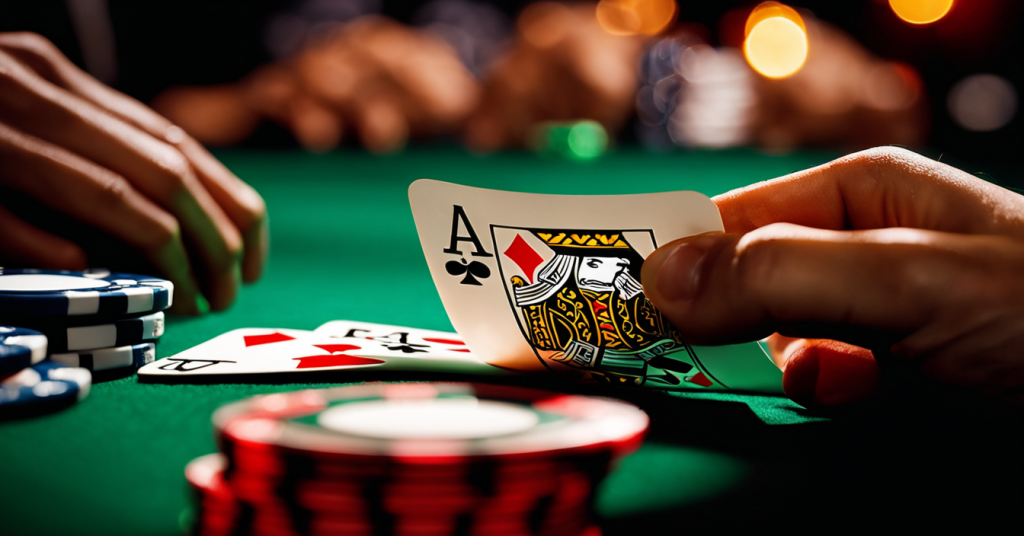
How to Win at Poker: Strategies and Insights
Poker is more than just a game of chance; it’s a strategic battle of wits where skill, psychology, and luck intertwine. If you’re looking to up your game and make consistent profits, understanding the fundamentals and mastering advanced techniques are crucial. Whether you’re a novice eager to learn or an experienced player looking for new insights, this guide will delve deep into the strategies that can help you triumph at the poker table.
The Basics of Poker Strategy
Understanding the Game
Poker is played in various forms, but the principles of strategy remain largely the same across different variants. From Texas Hold’em to Omaha, the essence of poker revolves around making the best decisions based on the information available and outsmarting your opponents.
Starting Hands: Your journey to winning begins with understanding starting hands. Not every hand is worth playing, and recognizing which hands to fold and which to raise is crucial. For example, in Texas Hold’em, hands like pocket aces or kings are generally strong and worth a raise, whereas hands like 7-2 offsuit are typically weak.
Position: Position refers to where you are sitting relative to the dealer. Being in a “late” position (acting after most players) offers the advantage of seeing how others act before making your decision. Conversely, an “early” position means you have less information but might need to play more conservatively.
Advanced Techniques for Success

Mastering Bluffing and Deception
Bluffing is an art that can turn a weak hand into a winning one. However, it’s important to bluff intelligently. For instance, consider the famous case of Chris Moneymaker, whose bluff at the 2003 World Series of Poker is legendary. His calculated bluff in the final hand of the tournament demonstrated how understanding your opponent’s tendencies can make a bluff successful.
Types of Bluffs:
- Pure Bluff: Betting or raising with a weak hand with no hope of improvement.
- Semi-Bluff: Betting with a hand that might improve to the best hand, such as a flush draw or straight draw.
Effective bluffing also involves timing and reading your opponents. If you consistently bluff, observant players will catch on. Varying your bluffs and keeping your opponents guessing is key.
Reading Your Opponents
Winning at poker often comes down to who can better read the other players. Observing betting patterns, body language, and reactions can provide valuable insights. For instance, if a player suddenly becomes very quiet or overly aggressive, they might be holding a strong hand or trying to bluff.
Key Observations:
- Betting Patterns: How often does a player bet or raise? Do they tend to bet high when they have strong hands?
- Physical Tells: Even in online poker, timing and frequency of actions can serve as tells. For example, a sudden delay before a bet might indicate hesitation or strength.
Bankroll Management

Setting Limits and Sticking to Them
One of the biggest mistakes players make is failing to manage their bankroll effectively. Successful poker players set limits on how much they’re willing to lose and stick to those limits. This practice helps prevent going on tilt and ensures that losses don’t spiral out of control.
Example: Consider the story of Phil Ivey, one of poker’s greatest players. Despite his incredible skill, Ivey is known for his disciplined approach to bankroll management. By setting strict limits and adhering to them, he’s able to avoid the pitfalls of reckless play.
Understanding Variance
Poker is inherently volatile, and even the best players experience swings. Understanding that variance is a part of the game helps maintain a healthy mindset. For instance, a player might go on a winning streak, followed by a losing streak, but this doesn’t necessarily reflect their skill level.
Tip: Track your results and analyze your play to ensure that your long-term strategy is sound, even if short-term results vary.
Psychological Aspects of Poker
Mastering the Mental Game
Poker is as much a mental game as it is a strategic one. Emotional control, focus, and resilience play crucial roles in your success. For instance, tilt—a state of emotional frustration—can lead to poor decision-making and significant losses.
Techniques for Mental Toughness:
- Mindfulness and Relaxation: Practices like deep breathing or meditation can help maintain calm and focus.
- Routine and Preparation: Establishing a pre-game routine can help get into the right mindset before playing.
Building Your Poker Skills
Learning from Others
One of the best ways to improve your poker game is to learn from others. Engage with poker communities, watch tutorials, and analyze hands from professional players. Platforms like YouTube and poker forums offer a wealth of knowledge and strategies from experienced players.
Example: Watching high-stakes games and analyzing the decisions made by pros like Daniel Negreanu can provide insight into advanced strategies and thought processes.
Continuous Improvement
Poker is a game where continual learning and adaptation are necessary. As new strategies and trends emerge, staying updated and adjusting your playstyle is crucial. Regularly reviewing your play, seeking feedback, and studying new techniques can keep you ahead of the competition.

Winning at poker is a multifaceted endeavor that involves much more than simply having a good hand. It requires a deep understanding of strategy, the ability to read opponents, effective bankroll management, and a strong mental game. By combining these elements and continually honing your skills, you can increase your chances of success at the poker table.
Remember, poker is as much about playing the player as it is about playing the cards. With dedication and practice, you’ll find yourself making smarter decisions, executing more successful bluffs, and ultimately, winning more often. Keep learning, stay disciplined, and enjoy the journey to becoming a better poker player.
